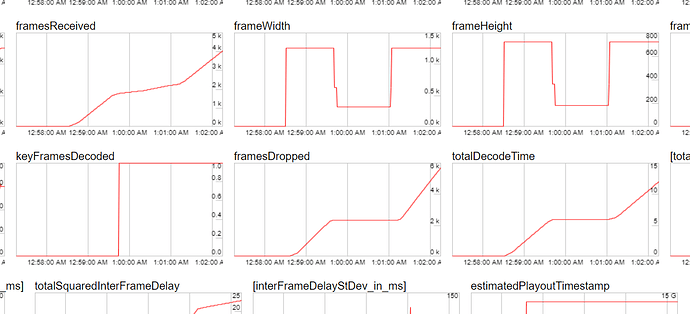Hi guys, thanks a lot for this project and for all the work that you have done. I can’t even estimate all the efforts you have already put into it and sharing it with everyone for free. I am have been watching for your projects and using your libraries since early beginging of JSSIP. I really apreciate all your invaluable contribution to WebRTC community. I am releatively new to Mediasoup. I wanted to check VP9 SVC demo, and found weird issue with how its behave, bassically it doesnt switch temporal layers, only spatial could be applied, i.e. 0.0, 1.0, 2.0. Also when i am switchig to any layer other from initial, video framerate drops significantly 4-5 fps. At the same time stats for framesReceived starts to corelate with framesDropped.
. Another question, i noticed that google-meet is adding useadaptivelayering_v2=true for each video paload in SDP, have you been able to determine what it actually imply on? If you’ll need any more information, debugging\testing just let me know.I’ve just tested in Chrome stable last version 89.0.4389.128 and Canary last version 92.0.4477.0 (in macOS BigSur) and it works perfectly, spatial and temporal layers do work as expected.
No idea what such a custom parameter is for, but it’s not in libwebrtc code. No idea what Google Meet SFU does with it but it should be irrelevant.
That is super weird. As i can’t reproduce that right now either… But I am doing test on a single PC… Yesterday i was using PC and laptop, but once you replied, Windows on laptop decided that it is time to update  I beleive they have some ML stuff that knows most inapropriate time to start update. I will look for a way to reproduce it, once it will finish updating.
I beleive they have some ML stuff that knows most inapropriate time to start update. I will look for a way to reproduce it, once it will finish updating.
The things is: Chrome releases may also contain bugs (and they do). For example, in a very recent Canary release a few days ago, VP8 simulcast stopped working completely.
It may seem hard to believe, but usually those issues are not related to mediasoup at all 
